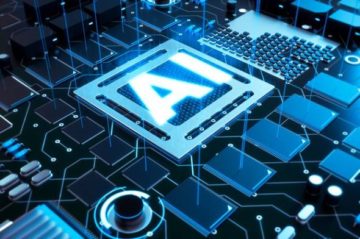 One in five workers in a non-routine job will rely on artificial intelligence (AI) for at least part of their role, according to forecasts. The growing volume and complexity of business data have forced many firms across a variety of industries to adopt AI to boost growth.According to data gathered by LearnBonds, this trend is set to continue over the coming years, with global artificial intelligence software market value jumping from $22.6 billion in 2020 to a remarkable $126 billion by 2025.
One in five workers in a non-routine job will rely on artificial intelligence (AI) for at least part of their role, according to forecasts. The growing volume and complexity of business data have forced many firms across a variety of industries to adopt AI to boost growth.According to data gathered by LearnBonds, this trend is set to continue over the coming years, with global artificial intelligence software market value jumping from $22.6 billion in 2020 to a remarkable $126 billion by 2025.
Artificial intelligence has already begun to revolutionise industries across the world, helping businesses to improve their efficiency, quality, and speed. By using automation, deep learning, and natural language processing, AI helps streamline business operations, decision making, and help predict trends.
Over the years, many of the biggest names in the tech industry have invested heavily in AI acquisitions and AI-related research and development. Companies such as IBM, Microsoft, Google, and Samsung have each submitted thousands of AI patent applications, while AI-related startups will rake in billions of dollars in investment each year.
In 2018, the value of global artificial intelligence software industry hit $10.1 billion, revealed in the Tradica Artificial Intelligence Market Forecast. Over the last two years, the market value doubled to $22.6 billion . However, the next few years are expected to witness remarkable growth of the entire AI software industry, with market value lifting more than fivefold by 2025.
Looked at by region, North America is the leading AI software industry in the world, with giants like Microsoft, IBM, Google leading the market. The North American market is expected to top $9.8bn this year and continue growing to be worth over $51.5 billion value in the next five years.
The Asia-Pacific region ranked as the second-largest AI software industry globally, valued at $6.3 billion. By 2025, this figure is forecast to grow five times to $32.9 billion. The European market, the third-largest globally, is expected to jump from $5 billion in 2020 to be worth $26.5 billion in 2025.
Software robots and AI automation have already gained a massive role in manufacturing, retail, banking, and insurance. They also play a huge role in investing and lending platforms, where sophisticated computer algorithms make decisions in minutes instead of days.
The so-called digital workers are already transforming traditional workspaces, performing business tasks like a human worker, only much faster and without mistakes.
According to a KMPG 2019 global survey, nearly 75 billion of those asked said that up to half of their current workforce would be significantly impacted by the adoption of intelligent automation technologies.
Although many people consider automation and AI as traditional job killers, the coming years are expected to witness a growing integration between human and digital workers, creating a new hybrid workforce. By taking over routine tasks, digital workers will leave more time for people to manage complex jobs. This new hybrid workforce is expected to reduce costs, improve efficiency, and create better products and services for customers.





